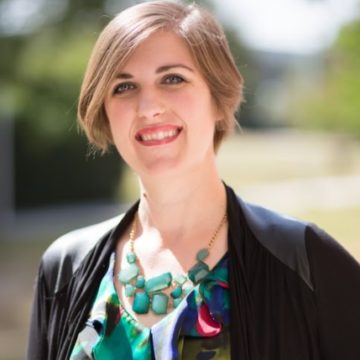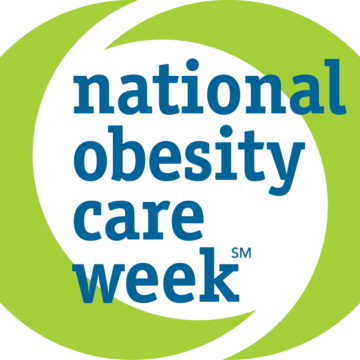 Imagine going to a doctor’s office and being told something like, “I can tell you are very depressed. Being depressed is bad for your health. You need to be less sad. I want you to be happier by the time I see you again in six months.”
Imagine going to a doctor’s office and being told something like, “I can tell you are very depressed. Being depressed is bad for your health. You need to be less sad. I want you to be happier by the time I see you again in six months.”
Apply that exchange to the topic of obesity: “You are obese. Being obese causes all sorts of other health problems, and you have to lose weight. You should lose ‘X’ pounds by ___ (this date). I received that message from family and healthcare professionals since childhood, and hearing it repeatedly impacted both my physical health and overall mental well-being.
Why I Support National Obesity Care Week
My name is Ava Zebrick and I proudly support National Obesity Care Week (NOCW) 2018 to raise awareness about the need for better obesity care and understanding. I have been affected by overweight and obesity since I was eight years old. I tried and failed to lose and keep off weight… over and over again.Then I’d gain and gain.
By 17, I had hypertension, high cholesterol, clinical depression and pre-diabetes. Five years ago I weighed 300 lbs with a BMI of 47. At 25, I found myself in an orthopedist office looking at an X-ray of my knee and facing weight-related knee surgery. At 25, I realized my life depended on finding something that could finally work.
I decided on bariatric surgery, was denied access by health insurance, took out a medical loan and spent $15,000 on the operation. Before my weight-loss journey effectively began five years ago, I did not understand the first thing about obesity. It is a complex disease that needs appropriate care and treatment!
The Complete Picture
We understand that depression is complex and calls for diverse and evolving therapies. In contrast, I grew up understanding that developing obesity was my fault and my responsibility.
Trust me. My parents were loving and they diligently focused on my weight because they wanted me to be healthy and happy. They hurt to see me miserable and painfully worried they might outlive me. My brilliant OBGYN Nurse Practitioner, who diagnosed Polycystic Ovarian Syndrome (PCOS) and pre-diabetes when I was 17, was always caring and compassionate. Our “You need to lose weight conversations” included:
- “I recently read a book written by an athlete who jogs every single day, rain or shine. It was really inspirational and it might motivate you.”
- “When I see a bowl of candy, I get tempted too. But then I stop myself and ask, “Do I really need this?”
- “Here are food diary sheets to fill-out and bring to your next appointment.”
Notice that all of this advice focused on my decisions and willpower.
I was deeply cared for, and everyone was encouraging and supportive with the best intentions. Even so, their well-meaning words reinforced my internalized thoughts of: “This is my fault. This is my failing. I’m doing this to myself and I’m letting them down.”
Instead, their encouragement fed my vicious self-talk and I internalized this shame into adulthood. I would avoid the topic and lie about my behavior. I “forgot” the food diary at home, even though I’d never put pen to paper. I often anxiously cancelled appointments the day before. Eventually, I dreaded the idea of trying to lose weight. Not trying hurt less than failing.
Join Me in Supporting NOCW2018!
 Everyone involved with the conversation about weight needs knowledge and understanding of obesity as a highly genetic disease, as well as the chronic relapsing progressive disease process.
Everyone involved with the conversation about weight needs knowledge and understanding of obesity as a highly genetic disease, as well as the chronic relapsing progressive disease process.
Healthcare providers and patients with obesity need this understanding and access to science-based, individualized and adaptive treatment.
I am asking you to support NOCW2018 taking place October 7-13! To join the fight, take the pledge to change the way we care about obesity at: ObesityCareWeek.org/Action
